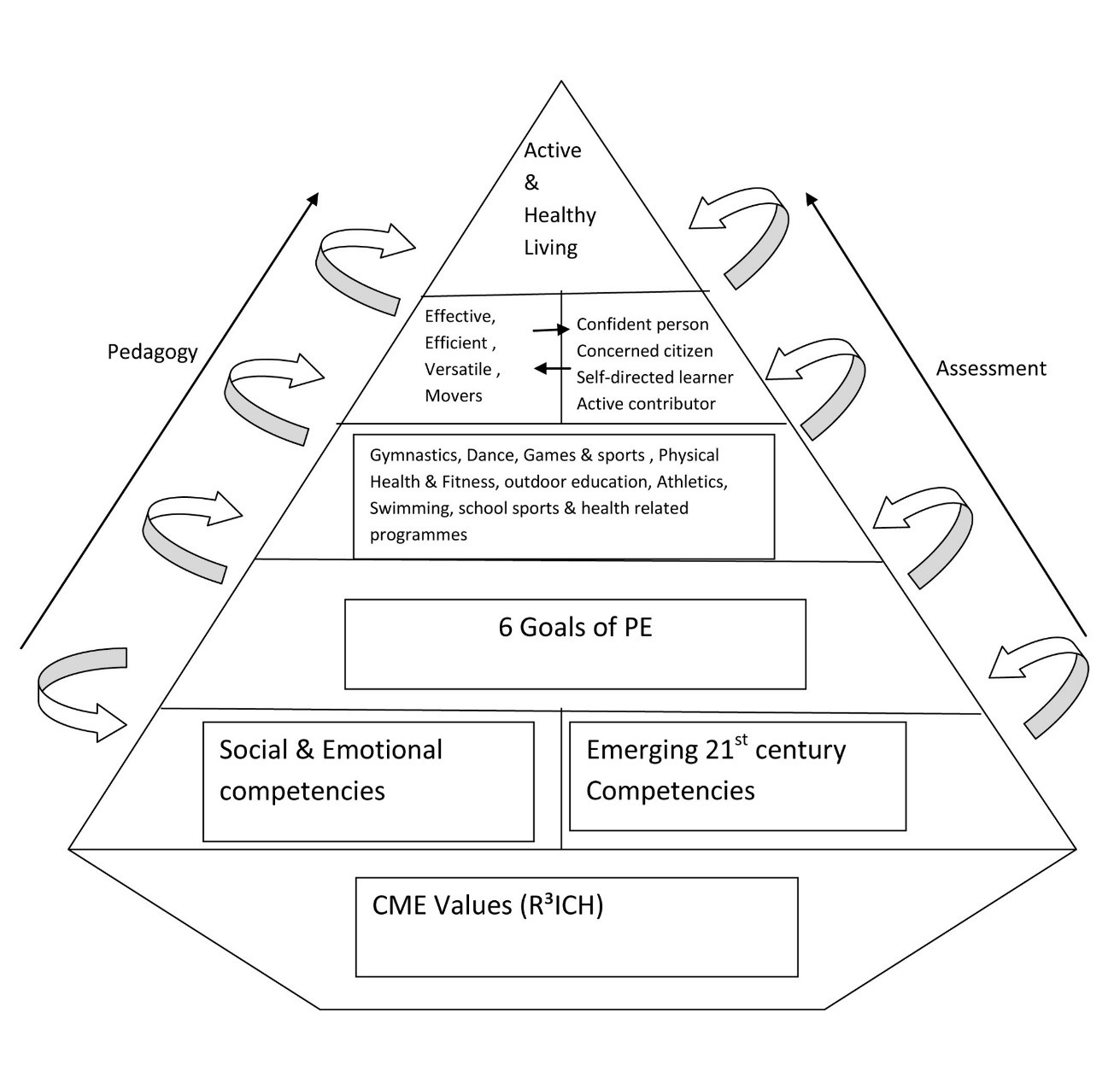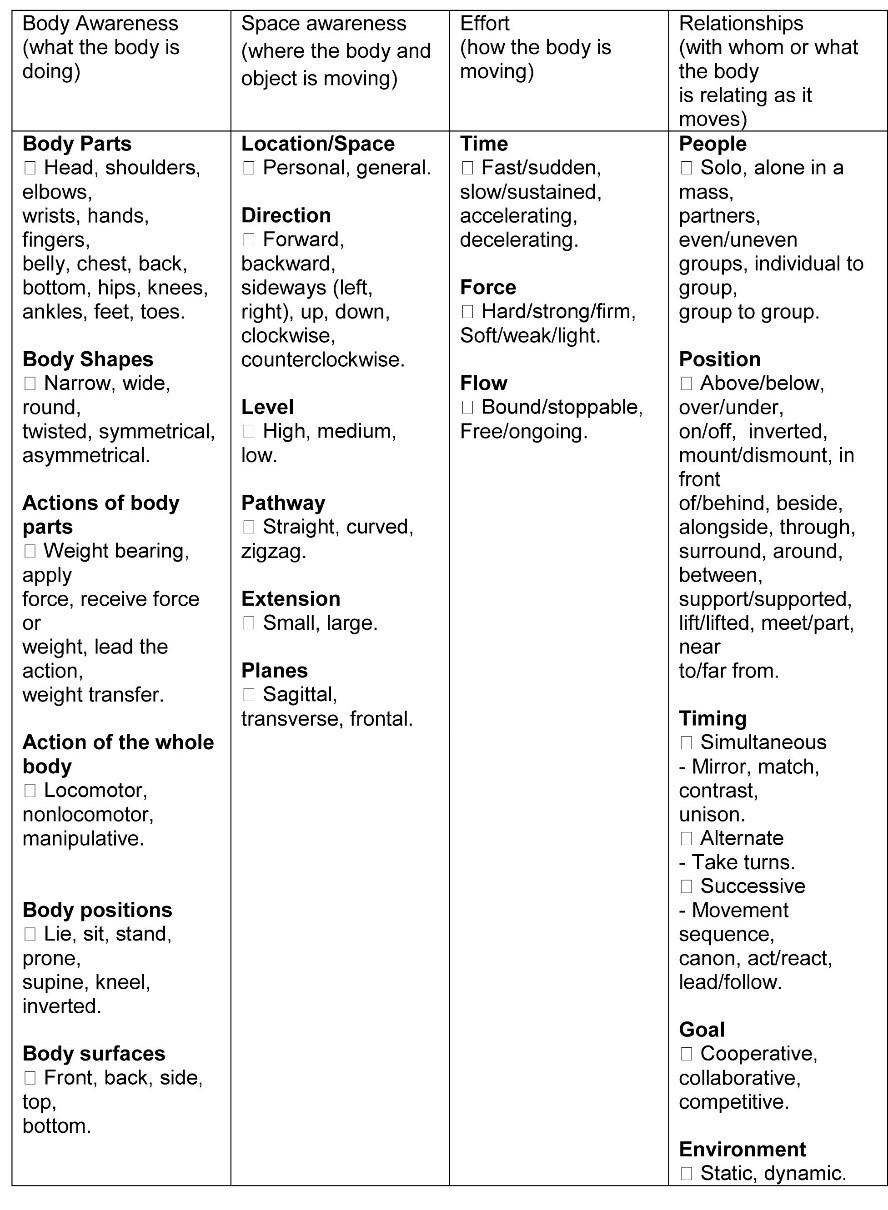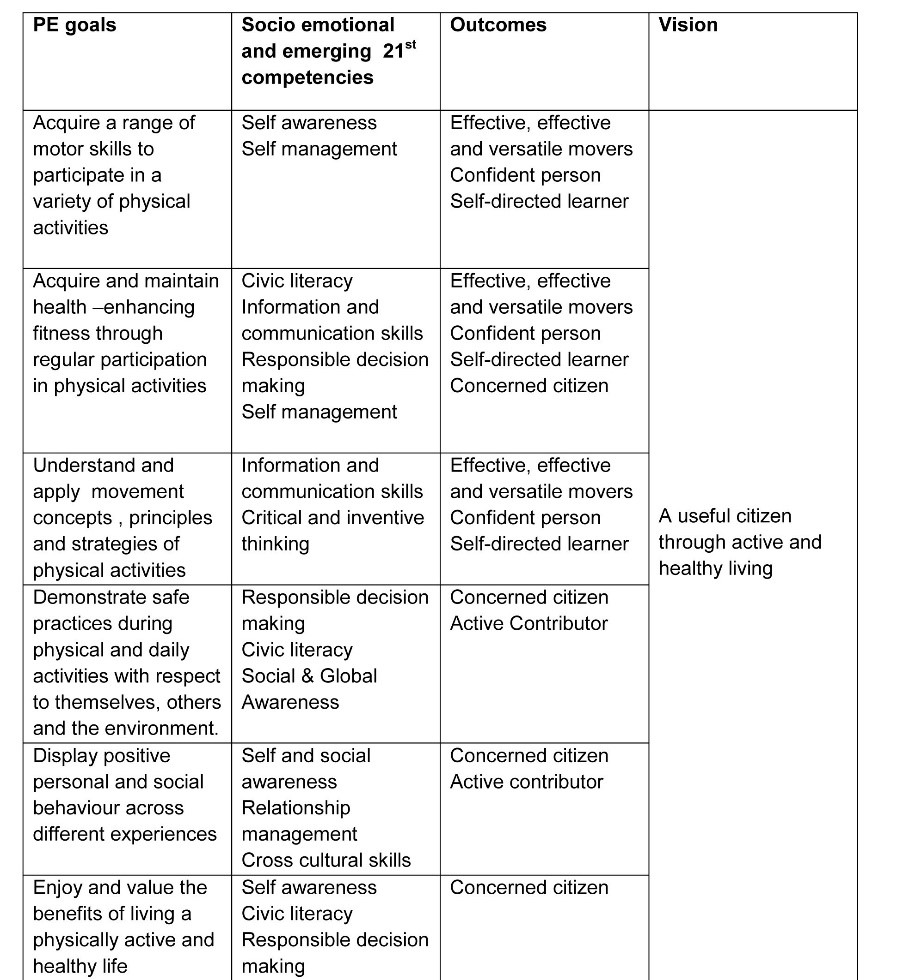Physical & Outdoor Education
Physical & Outdoor Education
Vision
Every Pupil acquires the physical skills, knowledge, practices and values to pursue and enjoy a lifetime of active, healthy living and develop themselves to be a person of good character and a useful citizen of Singapore.
Mission
Through a dynamic team, opportunities are created & provided for every pupil to be effectively engaged in the development of their physical skills, knowledge, practices and values so that they will be inspired to lead a lifetime of active, healthy living so as to be a useful citizen of Singapore.

Physical development through the PE curriculum
The school physical education programme aims to provide a range of movement experiences to strengthen the students’ body, mind and soul. It also aims to help to develop a foundation and interest for an active lifestyle. The lower primary level curriculum focuses on the teaching and mastery of fundamental motor skills and concepts. The school believes the complete spectrum of fundamental motor skills and concepts are important building blocks for the learning of specialised skills across a variety of physical activities. The upper primary levels focus on further refinement of basic movement patterns and the development of the combined skills to help them move with increasing complexity, variety, and versatility to take on more challenging movement activities and tasks.
The motor skills and movement concepts framework identifies the three different fundamental motor skills and the four broad aspects of movement concepts. The school designs the PE curriculum based on this framework to promote students’ competence in motor skills. More importantly, we combine the skills, movement concepts and principles to enhance understanding, mastery and application of movement skills.
Motor skills and Movement Concept Framework

Character development through the PE curriculum
The PE curriculum framework comes in the shape of a sail boat as we believe the development of our students through the PE curriculum is more of a journey rather than the destination. It is through the process of learning that the pupils’ body, mind and soul are strengthened. The shape of a sail boat also depicts the need to adapt to the winds of change ever so prevalent in the 21st century landscape and to acquire the emerging 21st century competencies. However, as the pupils embark on the journey towards mastery of change and steer through the seas of change, they must be guided and grounded with strong core values. The PE curriculum aims to provide an authentic setting for the pupils to learn and practice values and ideals, develop appropriate social interaction skills, and express as well as control emotions that support the development of character.
The table below shows how the various socio emotional and Emerging 21st competencies predominantly serves as prerequisites as well as outcomes of the PE goals, and what desired outcomes to be derived from the goals.

Enriching the school experience through the sports & outdoor programmes
The PE department constantly seeks to provide opportunities for students to develop their characters and enrich their school experiences through the school’s sports & outdoor education. The Amazhenghua Race, Sports Education Programmes , Swimsafer programme , Adventure Camp cum IP Trail, Youth Olympic Games, Play@Recess programmes, and other sports & education programmes are implemented with the following objectives
- Promotion of social cohesion
- Developing sound attitude
- Expanding students’ mindset
- Developing the sense of perseverance
- Understand and apply teamwork & leadership qualities
- Build self-reliance and discipline in our students
- Expanding the students’ creative approach to challenges
- To equip the students with life skills to meet future challenges
Approach
The department adopts the Outdoor Experiential Learning Approach for Life Skills and Character Development in planning and implementing the programmes. Such an approach places emphasis on applying their skill, cognitive and socio emotional learning in their daily lives.
Steps of the Experiential Process:
1. Experience- the training they plan with minimal guidance from the teachers, except for safety and time requirements. 2. Share – the results, reactions and observations publicly. 3. Process- analyze the process and the results, improve on the training and the performance with teachers’ guidance 4. Generalize- to connect the life skills learnt to the larger world/ realities of living. 5. Apply- the new life skills learned to other parts of their lives.
Health Education Programmes
The PE Department has a vision that every pupil of Zhenghua is personally and socially responsible for the health and well-being of others and the environment. We also believe that every pupil should be equipped with the process skills and knowledge on health related matters regarding oral hygiene, environment hygiene, nutrition and physical fitness.
The following health related programmes are organized for the pupils throughout the whole year.
1. Eye Care Week promotes outdoor activities to combat Myopia. Games are planned to encourage pupils to give their eyes a break. Pupils will also make posters and bookmarks to promote eye care.
2. Termly Bingo Challenge SLS packages are rolled out to the students to encourage them to eat and drink healthily, as well as to exercise regularly and have sufficient sleep both in school and at home.This form of blended learning encourages the family to be actively involved in the effort of cultivating active and healthy living in the child.
3. Fruittie Veggie Bites Programme encourages pupils to eat fruist and vegetables regularly. They will get a small card each time they make such purchases from the canteen. The classes will combine their efforts to exchange for the big cards. This promotes teamwork.
4. The Fruity Day encourages students to pack fruits for their snack time. They will then take a group picture with their form teachers. At the same time, they are reminded to stay healthy by having 2 servings of fruit and 2 servings of vegetables every day.
5. Dental Programme promotes proper oral care by educating the pupils on proper tooth brushing exercises.

